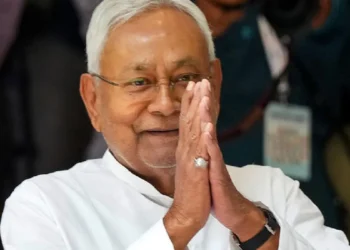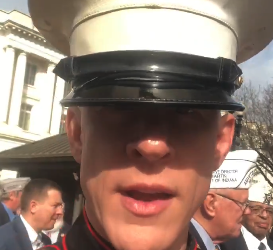In a scathing rebuke, the Supreme Court has questioned whether the PMLA is being wielded as a tool for indefinite detention, drawing parallels to Section 498A IPC. The ED now faces tough questions over its handling of cases.
BY PC Bureau
In a major blow to the Enforcement Directorate (ED), the Supreme Court on Wednesday (February 12) granted bail to an accused in a case under the Prevention of Money Laundering Act (PMLA) and raised serious concerns about its potential misuse. The Court likened the situation to the widespread misuse of Section 498A IPC (anti-dowry law), which has often been criticized for being used to keep individuals in jail unfairly.
The bench, comprising Justice Abhay S Oka and Justice Ujjal Bhuyan, questioned the ED’s approach in continuing the custody of Arun Kumar Tripathi, an Indian Telecommunications Service Officer arrested in August 2024 in connection with the Chhattisgarh liquor scam. The Court pointed out that the order taking cognizance of the prosecution complaint against Tripathi had already been quashed by the High Court on February 7, 2025, due to the lack of sanction for prosecution.
Justice Oka directly questioned the ED’s motives, stating, “If cognizance has been quashed, why should the accused be in jail?” He further observed, “Concept of PMLA cannot be to ensure that a person should remain in jail. I will tell you frankly, looking at several cases, see what happened in 498A cases. If this is the approach of the ED… very very serious offence, but if the tendency is to keep the person somehow in jail, even after cognizance is quashed, what can be said?”
ALSO READ: Upset over Biren Singh Ouster, Meitie body targets Shah
The ruling underscores growing concerns, often voiced by opposition leaders, that the PMLA has been widely misused in the country. The Court also expressed dismay that the ED failed to inform it about the quashing of cognizance, stating, “It is shocking that ED knows that the cognizance was quashed, yet this was suppressed. After 5 questions, this was informed to us. We should summon the officers. ED must come clean.”
The bench further grilled the ED for withholding crucial information and acting in a manner that appeared to defy judicial oversight. Justice Bhuyan added, “The order (quashing cognizance) was dictated in court. Your officer was present in court. Yet this was not told to us!” The Court found it unacceptable that the ED had proceeded to apply for fresh cognizance based on a sanction obtained subsequently while keeping the accused in jail.
“What kind of signals are we giving? Order taking cognizance is quashed and the person is in custody since August 2024!” Justice Oka remarked sharply.
ALSO READ: Huge protest by Manipur Nagas against border fencing
During the hearing, Additional Solicitor General SV Raju defended the ED’s stance, arguing that the quashing of cognizance did not automatically render the arrest illegal. He insisted, “Order taking cognizance was quashed not on the ground that offence wasn’t made out. It was for lack of sanction, and sanction is there now.” He further added, “Crooks cannot get away on technicalities. These are officers who ran a parallel liquor business and siphoned off money to Dubai.”
ALSO READ: “Chhaava Dominates! 2L+ Tickets Sold, Set for Biggest Valentine’s Day Opening!”
However, the Supreme Court disagreed, emphasizing that as of now, no valid prosecution complaint existed. The bench firmly noted, “As on today, the position is, no complaint is filed on 5th October 2024 as the order taking cognizance is not in existence. The respondent has acted upon order dated 7 February 2025 by making application dated 7 February 2025 before the Special Court requesting the Court to take cognizance. Now the Special Court will have to examine the case in the light of the stand taken by the respondent that there is a sanction. Whether the sanction is valid or not will have to be examined by the Special Court.”
The Court ultimately ruled that the accused, who had been in custody since August 2024, could not continue to be detained under such circumstances. “In view of these peculiar facts, custody of the appellant cannot be continued,” the judgment read.
However, acknowledging the gravity of the allegations, the Court permitted the imposition of stringent bail conditions. The accused was directed to be presented before the Special Court within a week, which would then release him on bail with strict conditions, including the surrender of his passport. Additionally, the accused was required to give an undertaking to attend all court proceedings regularly.
This landmark ruling by the Supreme Court sends a strong message about the need for accountability in the enforcement of the PMLA. The Court’s stern rebuke of the ED’s conduct has reignited debates over the law’s misuse and the necessity of judicial safeguards against arbitrary detentions. With opposition leaders frequently alleging that the PMLA is weaponized for political vendettas, this judgment is poised to have far-reaching implications in the ongoing discourse surrounding law enforcement and due process in India.













